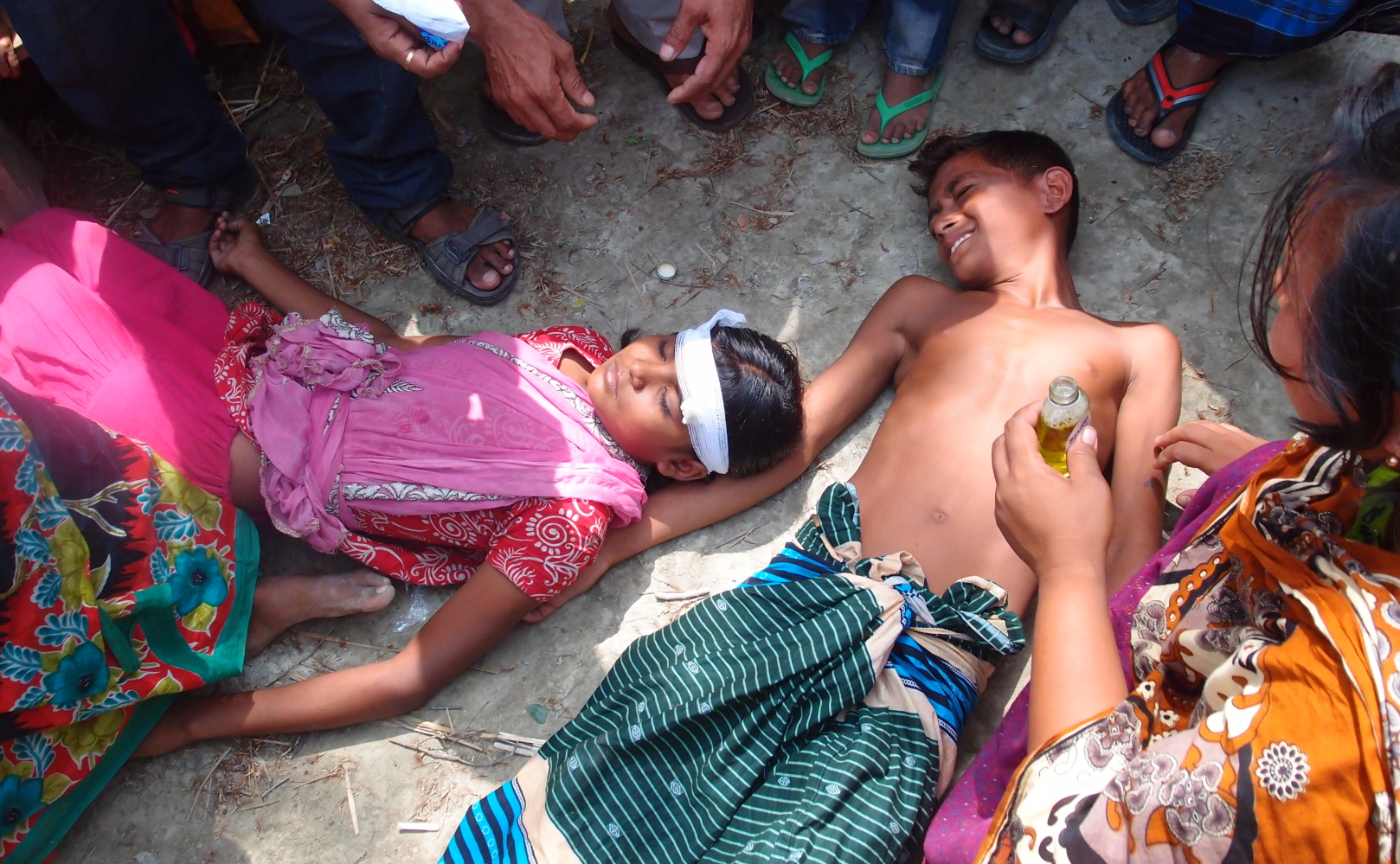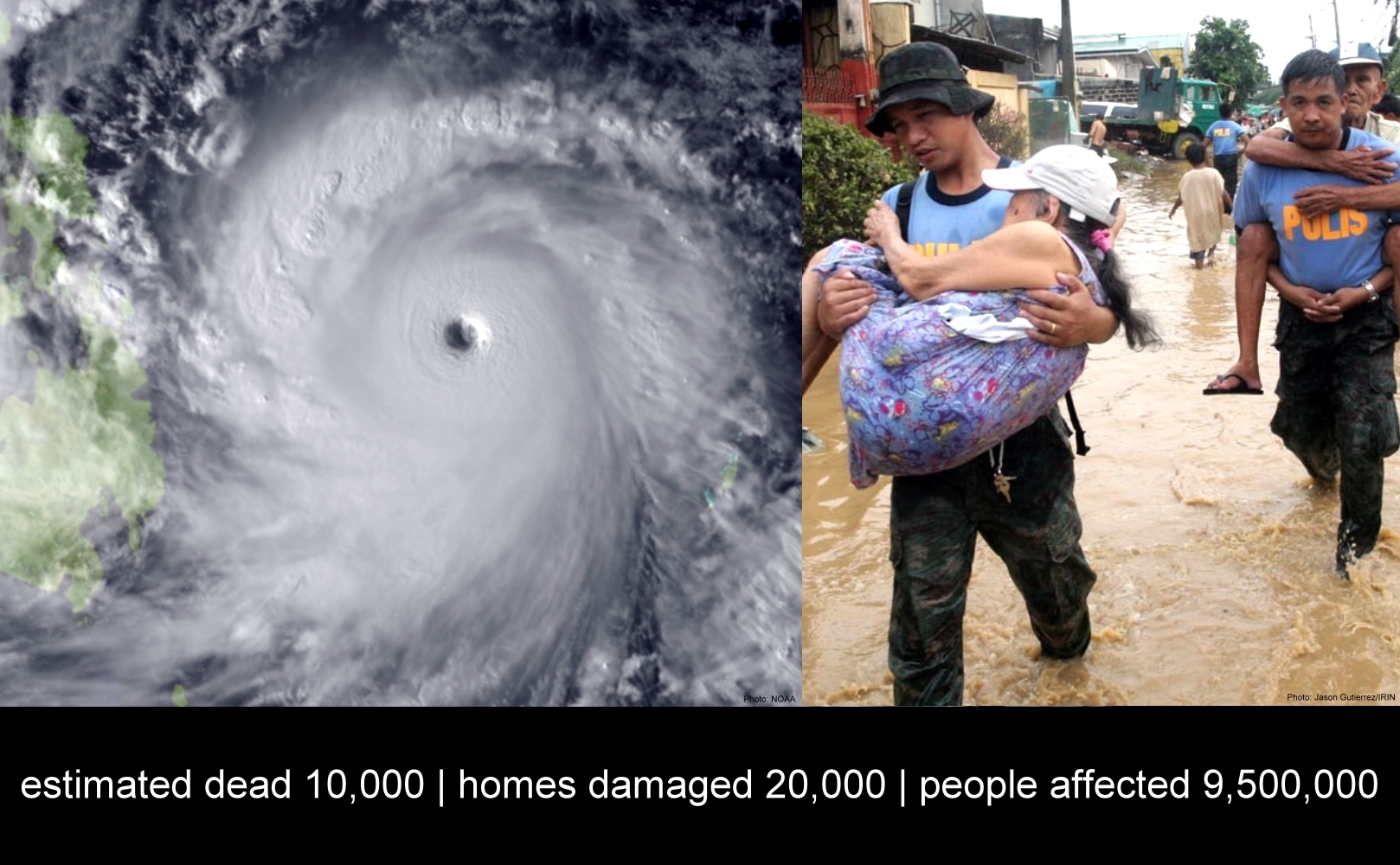[ ‘SHARE’ Mar-Apr 2014 ] FOCUS ~ MINISTRY
Compiled and written by> Jojo Poon
Kalapara lies in the southernmost part of Bangladesh, where each rainy season causes great concern to its inhabitants. Memories of past typhoons and floods bring fear: lives, crops and houses may not survive the coming ones.
‘Our villagers are mostly illiterate and have no knowledge of disaster prevention, so any natural hazard would result in heavy casualties and property loss.’ High-school girl Mitu told CEDAR’s partner World Concern Bangladesh about her village. Last May the whole village was anxious about surviving the coming storms but the fight against the latest level-10 cyclone rewrote the villagers’ fatalistic attitude to facing disasters.
From help-less to self-help
It was a frightening event when cyclone Mahasen directly hit Kalapara with winds of 90 km/h, flattening houses along the coast. Yet after the cyclone, residents were nonetheless thankful, and the community volunteers felt greatly encouraged. The disaster prevention and mitigation measures learnt from World Concern Bangladesh over the past three years have come into good use.
When the Bangladesh Meteorological Department forecasted that the tropical cyclone along Bangladesh’s southeast coastline had intensified to a hurricane-strength storm and was heading towards the southern coastal regions of Bangladesh, World Concern Bangladesh immediately contacted the area’s Community based Disaster Management Committees (CDMCs), launched emergency responses including issuing flag-warning and broadcasting, and summoned volunteer rescue and first aid teams, as well as preparing several shelters to be used.
‘One single flag hoisted by the village volunteer signifies that a natural disaster is coming, two flags warn people to look for a safe shelter nearby, and the highest warning of three flags means people should hide their possessions and dry foods under the floorboards and then hurry to a safe place immediately to save their lives.’ Mitu is one of those who learned this flag-warning mechanism and this helps illiterate villagers to identify different levels of disaster and respond accordingly.
Before Mahasen hit, the CDMCs managed to evacuate 4,000 villagers in time and no life was lost. This experience made the Kalapara residents see how they do not have to be helpless and resign themselves in face of a disaster – casualties can be prevented through communication, organisation and collaboration.
From disaster relief to disaster prevention
India faces as many disasters as Bangladesh. In July 2004, India’s Bihar State had the worst flooding in 50 years, affecting nearly 10,000 villages and 21 million people. Years of flooding have made Bihar State one of the poorest provinces in India.
CEDAR’s partner EFICOR has over 40 years of disaster relief experience and knows well that many rural communities of Bihar State have for a long time suffered in the vicious circle between disaster and poverty. EFICOR realises from experience that mere provision of disaster relief cannot deliver the affected communities out of their dire straits.
Since 2003, EFICOR has tried to promote community-based disaster management, setting up CDMCs made up of 7-10 resident representatives. They then liaise with the local government to relay the villages’ disaster prevention needs as well as assist in planning the regional disaster prevention strategies. Further, young villagers are organised into five special teams of warning, rescue, first aid, shelter management and relief management. The communities’ disaster prevention and resistance ability is raised through training and regular drills.

Residents of Bihar State at a rescue drill
Facing relentless disasters, the villagers no longer just look after themselves and are not passive victims anymore. Through disaster management and mitigation training, the villagers not only learn to effectively prevent and fight against disasters, they also learn to work with each other and consider other people’s needs. ‘Instead of each person thinking about his/her own needs, the villagers now think about how the community as a whole might benefit. For instance, instead of installing hand-pumps in front of every door-step, villagers now consider installing the hand-pumps in strategic locations realizing that this would help more people during the floods.’ An EFICOR worker says.
From sighing to collective planning
Since 2009, CEDAR has directly started disaster mitigation and management programmes in China’s Yunnan, Hubei and Sichuan etc., giving disaster prevention training to the local communities, churches and schools. Villagers there who had witnessed many disasters often told us, ‘There is not a year without a disaster.’ This shows how they strongly believed that they could not resist disasters coming their way.
Disaster mitigation training aims to break this age-old thinking. During the training the people will usually find possibilities and resources within their own community and assess their potential disaster resistance ability; at the same time they review recent disasters and plot the months and types of frequent occurrences thereby working out feasible disaster prevention strategies.
A Yunnan pastor who attended the training told us, ‘In the workshop we found out that fire hazards were the most frequent in our community and happened a lot at a certain time. So during the dry season we have voluntary rangers watching out for forest fires. Further, since some villagers can only speak local dialects, special volunteers are appointed who would listen to the radio broadcasts during the rainy season and then give early warning of flooding.’
Disasters may be relentless but there is a bond amongst people. We are emotionally touched when we learn of disasters far or near and are often ready to help with relief. But prevention is better than cure, so let us walk with potential victims by taking the earlier step of disaster prevention and mitigation.

Joy at receiving aid, but the fight does not end here.
Related information
Hazard is something natural or manmade that can cause danger, loss or casualty, such as earthquake, flooding, storm, epidemic, war and economic crisis. A hazard itself does not form a disaster; a disaster is caused when hazard is coupled with environmental vulnerability.
Vulnerability is the inability of people to forecast or resist hazards and recover from them due to potential factors which can be economical (unstable livelihood / lack of credit facility), natural (deficiency in natural resources), constructional (flaws in construction designs / building on unstable slopes), personal (illiteracy / marginalised groups / chronic illnesses) and social (social unrest / bad leadership).
Disaster management includes a series of interrelated disaster risk reduction programs: disaster prevention and resistance, post-disaster rescue and recovery, and disaster mitigation. Disaster mitigation composes of long-term actions taken to reduce immediate and potential hazards and vulnerabilities so as to mitigate the impacts of disasters upon the community and the environment; actions include promoting disaster resistance education, improving social and environmental planning and advocating disaster resistance strategies.
This issue
- FOCUS: MINISTRY> Taking Precaution
- STEP INTO THE WORLD> Support CEDAR’s Disaster Management and Mitigation Works
- TAKING ACTION> Why Sigh and Not Reduce Carbon Emission? | Tiffany
- CEDAR’S BLOGGER> Richness in Poverty | David
- Download this issue




















